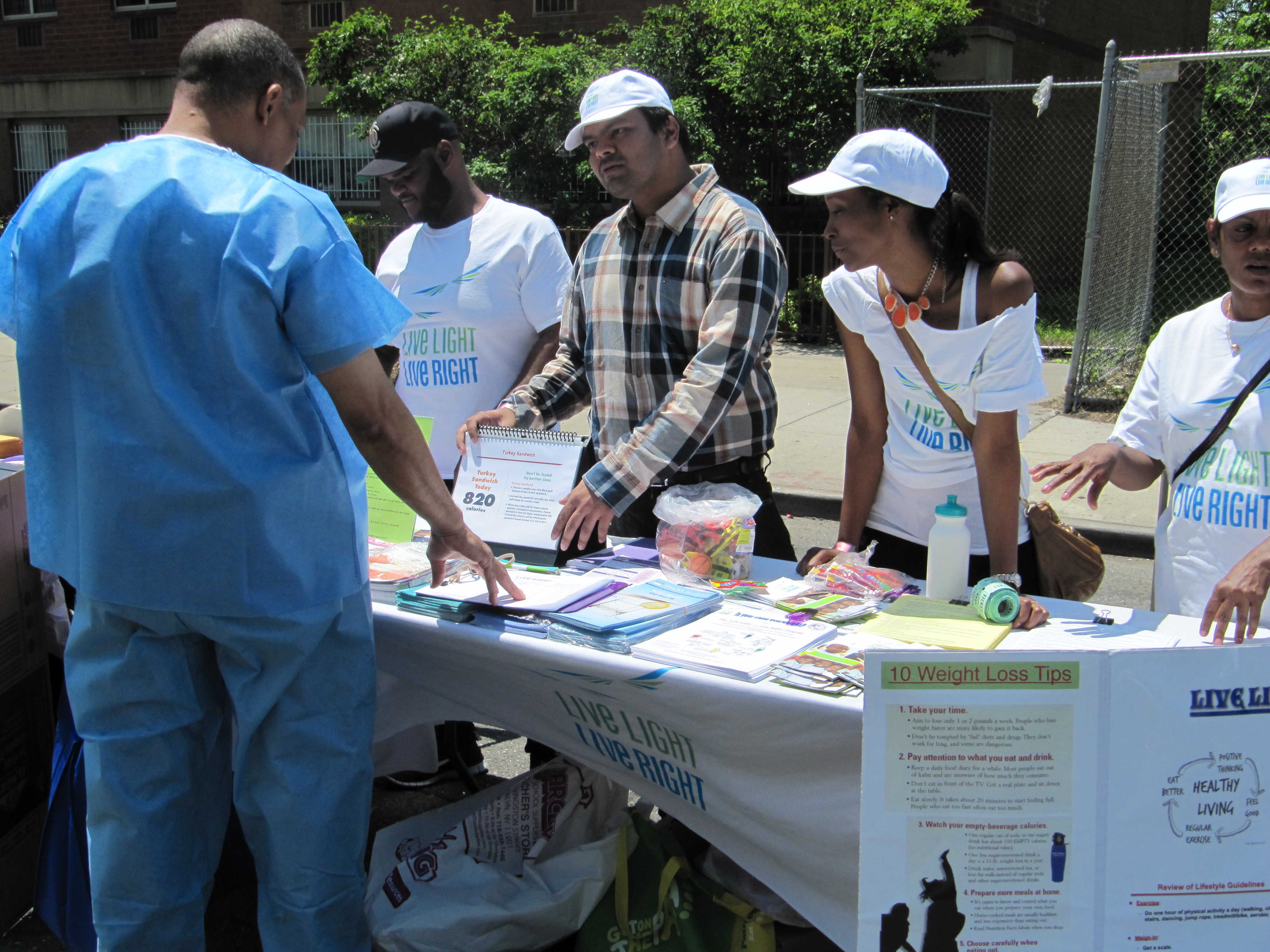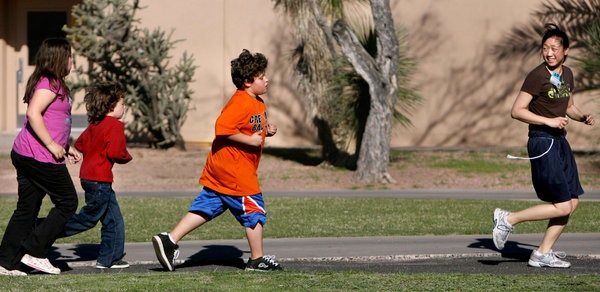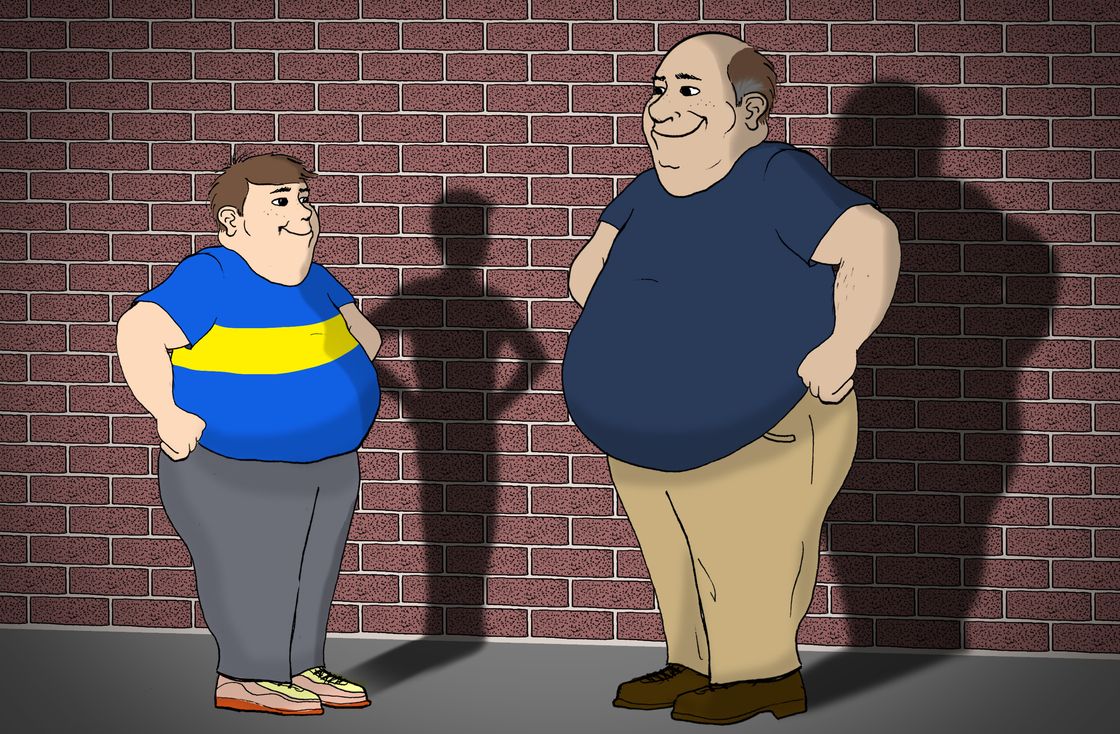For six summers the Live Light Live Right program has run a summer camp. It’s a special time for us and a great chance for the kids to spend time together, play and enjoy time outside. We wanted to share some pictures from the summer highlights.
Live Light News
Welcome Elisa Zied to our advisory board!
 We are thrilled to welcome Elisa Zied, a registered dietitian nutritionist, to our advisory board. Elisa also writes a blog for Parents.com called The Scoop on Food. It highlights topics that parents care most about when it comes to feeding their kids. She’s written about sugary drinks, fast food, hydration, food allergies and much more. Check it out here.
We are thrilled to welcome Elisa Zied, a registered dietitian nutritionist, to our advisory board. Elisa also writes a blog for Parents.com called The Scoop on Food. It highlights topics that parents care most about when it comes to feeding their kids. She’s written about sugary drinks, fast food, hydration, food allergies and much more. Check it out here.
“As a mother of two, I work hard to raise my children to live and eat well,” Elisa told us recently. “Once an overweight child, I turned my life around by eating less and eating better, and making fitness a priority in my life. I am thrilled to share my personal and professional experiences and work alongside an amazing staff and terrific children by serving on the Advisory Board of Live Light Live Right. I also love the fact that it’s based out of Brookdale Hospital–the hospital in which I was born!”
We’re excited to welcome Elisa to our team and look forward to working with her.
Robin Hood Fellows Day Out
Live Light Live Right was delighted to welcome a group of teenage fellows from the Robin Hood Foundation last month.
The fellows are older teens who have attended Camp Robin Hood. During the two-year program, they focus on venture philanthropy and Robin Hood’s quest to find, fund and partner with the best poverty-fighting organizations. Live Light Live Right is honored to be a Robin Hood partner and it was exciting to show these enthusiastic young people what we do everyday. Continue reading →
Managing cardiovascular risk in overweight children and teens
Pediatric cardiologists are seeing a dramatic increase in the number of overweight and obese children and adolescents who already have obesity-related diseases like hypertension, type II diabetes, and cardiovascular disease, according to paper by Dr. Sarita Dhuper that was published in the June issue of Pediatric Drugs.
Obesity is fast becoming the major cause of premature death in the developed world because obesity increases the risk of developing other diseases, not previously seen in teens and children. The article reviews the literature and recent scientific statements and recommendations by the American Heart Association (AHA) and the American Academy of Pediatrics (AAP) about the metabolic abnormalities associated with obesity, including newer identification and treatment strategies for obesity, dyslipidemia, and early subclinical coronary artery disease seen in high-risk children and adolescents.
Click here to access the article. Or, if you’d like to order a reprint, email Dr. Dhuper at sdhuper@livelight.org.
Brookdale Health Fair Was a Blast!
What a day of fun we all had last month at The Brookdale Hospital’s 10th Annual Health Fair. The bouncy house was a real hit with the kids and so was the face painting. And everyone loved the giveaways (while they lasted!) Continue reading →
AMA declares obesity a disease
The largest organization of physicians in the country has officially recognized obesity as a disease, a decision that could encourage health insurance companies to expand coverage and doctors to take the problem more seriously.
Until now, obesity was considered a risk factor for other diseases like type II diabetes or cardiovascular disease. It wasn’t considered an illness in its own right. But last month the American Medical Association voted to categorize the symptoms of obesity – a body mass index above 30 – as a disease. The move was controversial. The delegates who made the decision overrode a committee’s opinion. But its effects could have a far-reaching impact.
People suffering from obesity are often told they are lazy and that it’s their fault that they are overweight — we see it all the time in our program. With the largest medical organization in the nation declaring it a disease, perhaps this will be the first step in changing how we all think about obesity.
Although the AMA has no direct authority to change policies, it is the largest organization of doctors in the country and its opinions don’t go unnoticed. Doctors may pay closer attention to obese patients and treat obesity more aggressively if they view it as an illness and not a lifestyle choice. Health insurance companies might be more likely to pay for obesity-related symptoms if it is considered a disease. And people suffering from obesity may take steps to improve their health if they see that they are suffering from a disease that could be treated.
Childhood obesity is a mental health problem too
Childhood obesity affects more than just body weight. Many overweight and obese children also struggle with emotional, behavioral and peer problems. Studies have shown that they suffer disproportionately from negative self-regard, diminished quality of life and some psychiatric disorders.
It’s something we see in our own program everyday. A Live Light Live Right clinic based survey found that nearly half of overweight or obese children suffered from a depressive disorder and a quarter of them met the criteria for Attention Deficit Disorder (ADD or ADHD.) Obese youth with these dual diagnoses require comprehensive and integrated treatment as the two conditions may be mutually reinforcing. Continue reading →
Our Participant of the Month: Devi Badri!
Congratulations to Devi Badri. Our April Participant of the Month. Devi has been with the Live Light Live Right program for 10 years. She shared her story with us this month, telling us about her lifelong journey to a healthy weight. What an inspiration Devi is to us all.
“My name is Devi and I have been overweight almost all of my life. I joined the Live Light Live Right program about 10 years ago when I was only 9 years old. Ever since then I have been constantly trying to lose weight and live a healthy lifestyle by following their program.” Read the rest of her story here.
What About Poverty?
Obesity isn’t just about drinking too many Big Gulps. It’s also about poverty. Obesity rates are high everywhere, but in poor neighborhoods they’re even higher. In Brownsville, two out of every three children are obese or overweight, three times the national average. Hold that thought and think about Michael Bloomberg’s failed attempt to ban drinks like the Big Gulp. Perhaps if he had looked at obesity as a public health issue and not a problem of bad behavior, he would have won more support, according to an article in The New York Times. Continue reading →
Decoding Fact from Fiction About Obesity
Here’s a little game to play:
- True of False: PE classes help prevent obesity and encourage weight loss
- True or False: Losing too much weight too quickly is bad for your health
- True of False: Breastfeeding helps prevent obesity later in life
- True or False: Skipping breakfast will make you gain weight
Knowing When to Put a 7-year-old on a Diet
Dara-Lyyn Weiss’s daughter Bea was seven when a doctor told her the child was obese. In a year, Bea gained 23 pounds and her blood pressure had gone up. For Weiss, the news was a health crisis and she put her daughter on a calorie restricted diet and immediately evoked the wrath of parents who saw her actions as extreme and unnecessary. Continue reading →
Childhood Obesity Is Someone Else’s Problem
Childhood obesity affects more than one out of every three children in the United States. But talk to most American parents and they’ll tell you their kid will be just fine, a new poll finds. Continue reading →


















